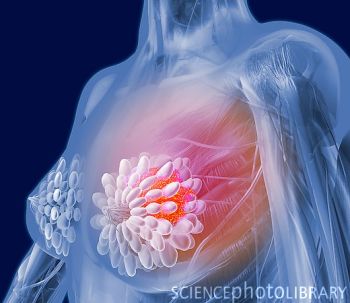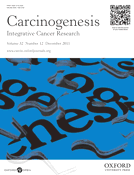乳腺癌是女性最常见的恶性肿瘤之一,雌激素受体ER、孕激素受体PR和表皮生长因子受体HER2均为阴性的(简称三阴性)乳腺癌是预后最差的一类,目前没有有效的靶向治疗药物,对放射治疗和化疗也不敏感,因此寻找三阴性乳腺癌的有效治疗靶点是目前研究的热点之一。

中国科学院昆明动物研究所肿瘤生物学实验室陈策实研究员领导的学科组前期研究显示KLF5转录因子在一部分三阴性的乳腺癌中特异高表达,KLF5通过紧密控制FGF-BP癌基因表达促进细胞增殖、生存以及肿瘤生长,WWP1 E3泛素连接酶促进KLF5蛋白的降解并抑制其功能,但是KLF5的正向调控机制尚不清楚。
最近,中国科学院昆明动物研究所肿瘤生物学实验室陈策实研究员博士后赵东等人,通过一系列实验研究发现, Hippo肿瘤抑制信号途径的TAZ(transcriptional co-activator with a PDZ-binding motif)癌蛋白通过其WW结构域结合KLF5的PPXY序列,拮抗WWP1 介导的KLF5的蛋白降解,促进KLF5的下游基因表达、细胞增殖以及肿瘤生长。而抑制TAZ的蛋白激酶LATS1可以通过TAZ抑制KLF5的表达和活性。
这项研究首次证实了TAZ促进乳腺细胞的增生机制是部分通过保护KLF5免受WWP1介导的泛素化降解,从而增强KLF5对下游癌基因表达的控制并且促进细胞周期进展。该研究提示KLF5可能是Hippo肿瘤抑制信号途径中的关键下游成员,并且证明KLF5和TAZ可以作为三阴性乳腺癌的潜在治疗靶点。
该研究结果最近发表在癌症领域主流杂志《致癌作用》(Carcinogenesis)上。该项研究得到了国家自然科学基金和云南省高端人才项目支持。

Orphan receptor TR3 participates in cisplatin-induced apoptosis via Chk2 phosphorylation to repress intestinal tumorigenesis
Lu-ming Yao, Jian-ping He, Hang-zi Chen, Yuan Wang, Wei-jia Wang, Rong Wu, Chun-dong Yu and Qiao Wu
Cisplatin is a widely used antitumor agent that induces aggressive cancer cell death via triggering cellular proteins involved in apoptosis. Here, we demonstrate that cisplatin effectively induces orphan nuclear receptor TR3 phosphorylation by activating Chk2 kinase activity and promoting cross-talk between these two proteins, thereby contributing to the repression of intestinal tumorigenesis via apoptosis. Mechanistic analysis has demonstrated that Chk2-induced phosphorylation enables TR3 to bind to its response elements on the promoters of the BRE and RNF-7 genes, leading to the negative regulation of these two anti-apoptotic genes. Furthermore, the induction of apoptosis by cisplatin is mediated by TR3, and knock-down of TR3 reduces cisplatin-induced apoptosis in colon cancer cells by 27%. The role of TR3 in cisplatin chemotherapy was further clarified in mouse models. In Apcmin/+ mice, cisplatin inhibits intestinal tumorigenesis by 70% in a TR3 phosphorylation-dependent manner; however, the loss of TR3 function in Apcmin/+/TR3-/- mice leads to the failure of cisplatin-induced repression of tumorigenesis. Consistently, xenografts derived from TR3 knock-down colon cancer cells are insensitive to cisplatin treatment, whereas a significant curative effect (50% inhibition) is observed in xenografts with functional TR3. Taken together, our study reveals a novel cross-talk between Chk2 and TR3 and sheds light on the mechanism of cisplatin-induced apoptosis through TR3. Therefore, TR3 may be a new target of cisplatin for colon cancer therapy.








